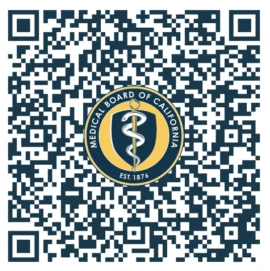Crohn’s disease and colitis both fall under the umbrella of inflammatory bowel diseases (IBD). They both cause inflammation and ulcers, and they have similar triggers. However, despite their similarities, Crohn’s disease and colitis differ from one another in significant ways, and these differences impact the management of symptoms and expectations after treatment.
Colitis is limited to the colon and rectum, whereas Crohn’s disease can occur anywhere between the mouth and rectum.
Read on to learn more about these two digestive diseases. Below, we asked our experts at Digestive Disease Consultants of Orange County to explain the differences between Crohn’s disease and colitis.
Understanding Crohn’s disease
Crohn’s disease is an immune-related condition. The immune system of a Crohn’s sufferer doesn’t attack healthy cells, which is what occurs with an autoimmune condition. Instead, the immune system has a dysfunctional response to pathogens, causing inflammation and oxidative stress long after the elimination of a pathogen.
Typical Crohn’s symptoms include abdominal cramps, reduced appetite, weight loss, fever, runny stools, blood stools, and mouth sores. In severe cases of Crohn’s disease, sufferers may experience inflammation of the liver, kidney stones, anemia, and inflammation of the skin and eyes.
Treatment usually includes dietary changes and medications that manage the inflammation in the digestive system.
The harshest foods on the digestive system are raw vegetables, high fiber foods, spicy foods, and foods that are known to be allergenic (e.g. peanuts and wheat). Opting for foods that are easier to digest may help reduce flare-ups.
In severe cases, our experts may recommend surgery to remove the damaged tissues in the intestinal tract.
Understanding Colitis
Colitis affects the colon and the rectum, damaging the inner lining of the intestinal wall. Some experts believe colitis could be caused by an autoimmune disease in which the immune system attacks healthy tissues in the colon and rectum.
Symptoms of colitis include runny stools (often accompanied by blood or pus), rectal pain, abdominal pain, fecal urgency, fever, and weight loss.
Colitis is manageable with medications and changes in diet. Medications used to treat colitis include corticosteroids and immunosuppressants.
In severe cases, our experts may recommend a surgical procedure to remove the colon and rectum if the damage to these parts of the digestive system is irreversible.
Learning more about the treatment and causes of inflammatory bowel diseases
Scientists aren’t yet sure what causes Crohn’s and colitis. Genetics, smoking, and poor intestinal flora are all risk factors for inflammatory bowel diseases such as Crohn’s disease and colitis. Some medications can also trigger or worsen IBD symptoms.
If you’re living with Crohn’s or colitis, contact us to schedule an appointment and get expert advice to improve your symptoms.



